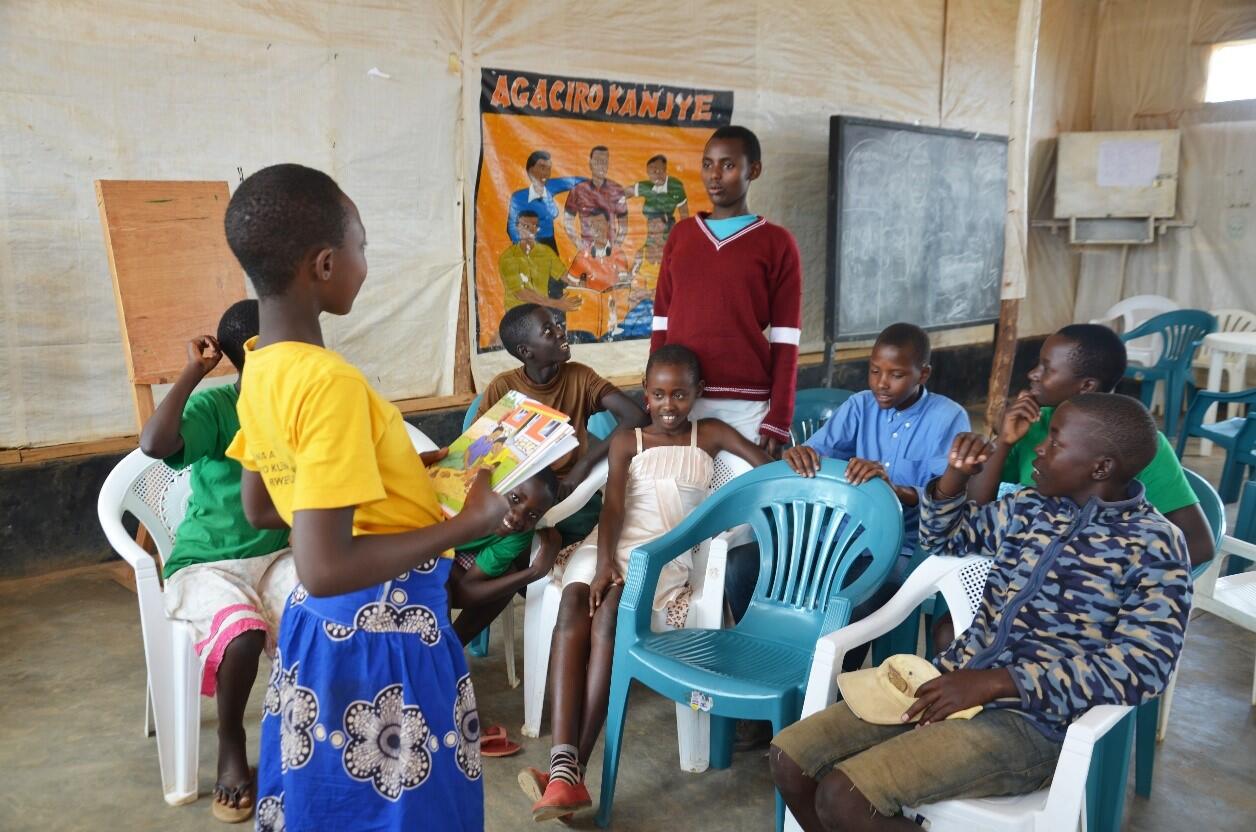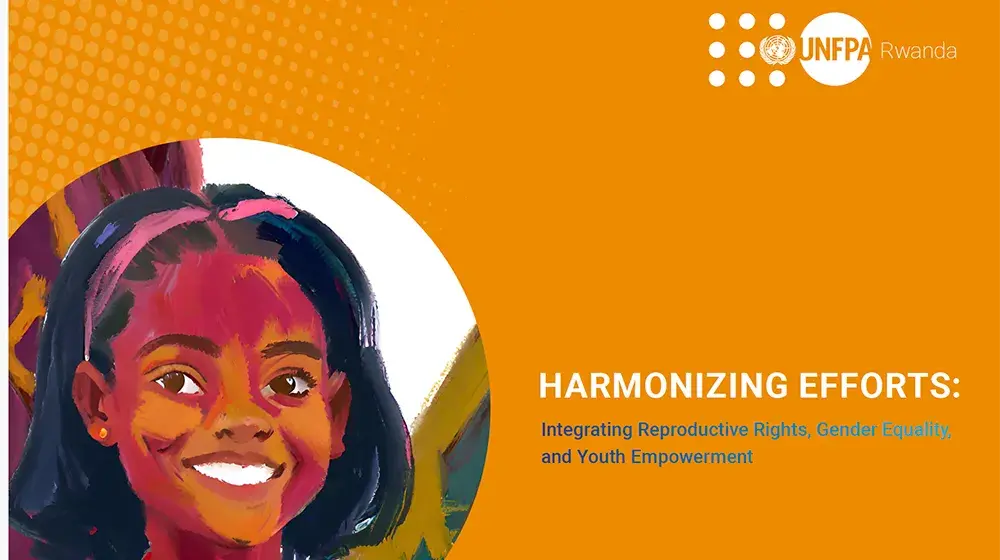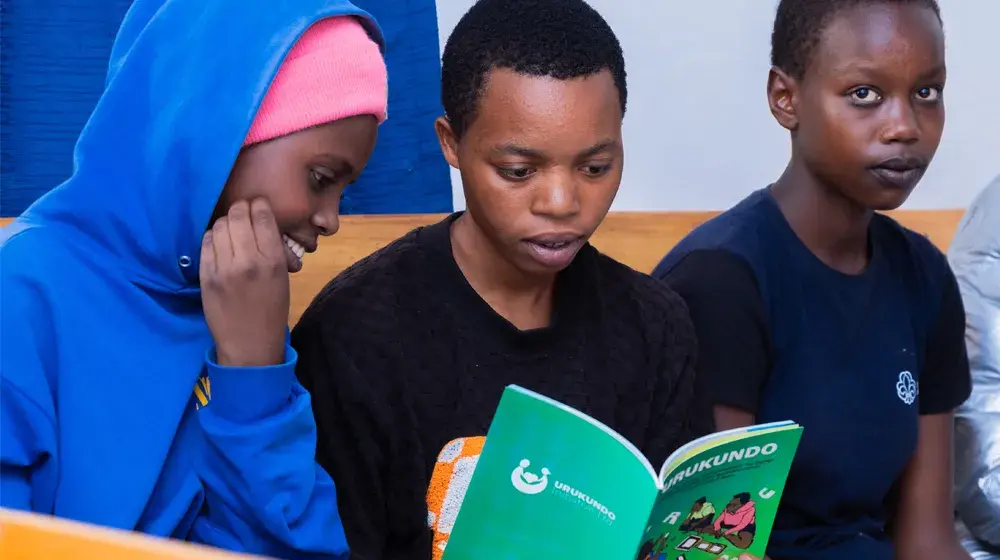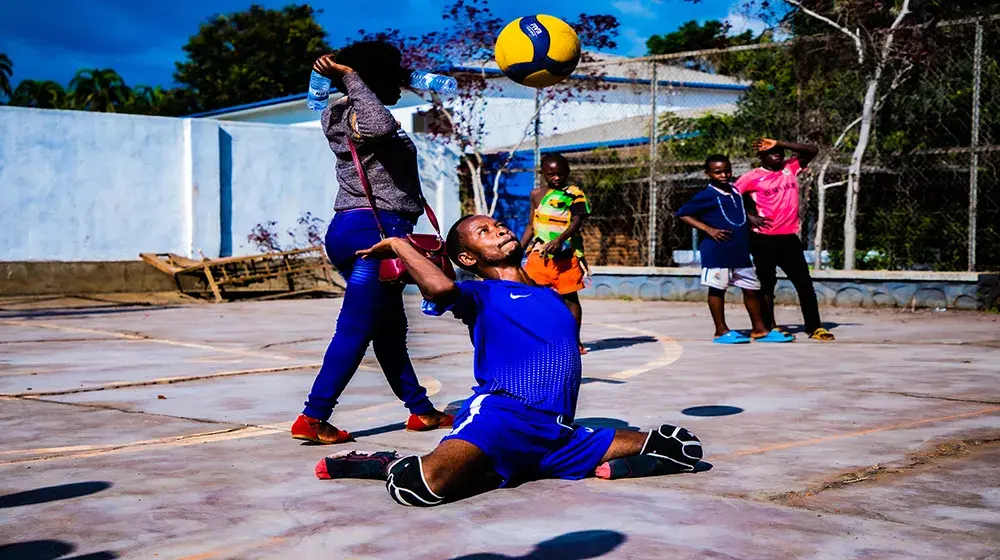Despite being refugees, youth and adolescents have a right to access information and services on Adolescent Sexual Reproductive Health (ASRH) to avoid early pregnancies, HIV and other Sexually Transmitted Infections (STIs).
“Youth especially adolescents when not given accurate and regular information on sexual reproductive health they are at risk of facing serious consequences in such a harsh living environment. We want them to understand that it is their right and encourage them to visit the Youth Friendly Centers to get information and services. We truly appreciate our partners for supporting us to protect and save lives of youth in the camp,” said, Therese Tuyisabingabire, in charge of ASRH in Mahama refugee camp.
The youth friendly center in Mahama refugee camp has activities such as awareness on prevention, screening and testing of STIs and HIV, counselling, treatment according to lab results, family planning services especially the morning pill which is common among adolescents.

Midwife Therese Tuyisabingabire educating teenagers on sexuality at a youth friendly center
Tuyisabingabire says after orientations in a group which are detailed to ensure everyone understands about prevention, testing, signs, consequences of HIV/AIDS and pregnancy, she goes to a separate safe room to attend to one by one and those who need testing. She says that due to intensive campaigns conducted, the center has not registered any teenage pregnancy for the last three months. More strategies have been introduced for example using peer educators, community female mentors, youth clubs, and house to house sensitization so that everyone is informed about sexual and reproductive health issues.
Uwiragiye Claudine, aged 19, revealed that most girls in the camp who became pregnant was due to poverty and lack of information. But since the introduction of sexual and reproductive health services and information tailored for young people, pregnancies have reduced and they have increased their knowledge on prevention of HIV/AIDS and other sexually transmitted diseases.
“My friends and I appreciate this special space designed for us to access information and services related to our sex health and can discuss sexuality issues without the interference of adults. We learn more about our body changes, condom use, prevention, signs and treatment of STIs with a nurse who understands our issues without judgement” Claudine appreciates.
Claudine urged young people especially fellow girls to be on the lookout for people who may deceive them and lure them into early sexual intercourse. She advised others to join different youth clubs to avoid idleness which most peers complain to be leading them to sexuality especially in this time of school holidays.Traditionally, parents are reluctant to talk to their children about sex and most fathers think it’s a role for mothers which is not the case. The wellbeing of the children requires joint efforts and engagement of all to avoid the consequences.
Thanks to UNFPA support of expanding access to adolescents sexual and reproductive health services and information through equipment, training and the integration of adolescent sexual and reproductive health services in three well-functioning youth centers established in the camp where young people access critical health information and services.





